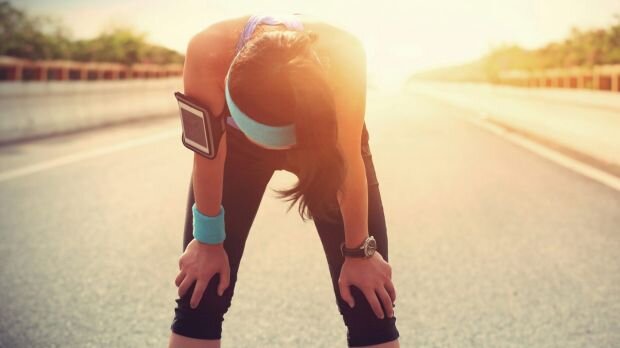Women are suffering alarming new rates of anxiety and depression
by The Sydney Morning Harold:Rates of anxiety and depression among Australian women are at a "concerning" high, as women nationwide fail to meet the recommended rate of weekly physical activity, a new study has found.Conducted by not-for-profit government funded organisation Jean Hailes for Women's Health, the study surveyed 10,000 women across Australia aged 18 to 80 on their physical and mental health concerns.More than 40 per cent of women surveyed said they had been previously diagnosed with anxiety disorder or depression by a doctor or pyschologist, with a "concerning" number of all ages expressing trouble sleeping and "worrying excessively about different things".Survey director Helen Brown said researchers had observed a link between the increased mental health concerns and low physical activity in women, and anxiety was the highest condition among "busy" women aged 18 to 35."It was really interesting that 60 per cent of women nationwide said they weren't active enough, as that's almost counter-intuitive considering that physical activity is a great way to deal with anxiety," Dr Brown said.While almost half of women described their health as "very good", 60 per cent of women perceived themselves as "slightly" or "quite" overweight. Only 42 per cent of women surveyed meeting the recommended level of 2½ hours of weekly moderate physical activity.The biggest barriers to exercise were "being too tired", "not having enough time", not having people to exercise with, and feeling unsafe exercising in their local neighbourhood, Dr Brown said."They're are all tied in together; you get too tired and then you don't do it," she said. "Then it rolls into [increasing] anxiety. It's a vicious circle."While Dr Brown acknowledged the potential for over-diagnosis, she suggested the particularly high rates of anxiety among younger women could be linked to new "expectations" of social media, added on top of everyday stress.The study found women of all ages who perceived themselves as overweight were four times more likely to feel held back from physical activity because of embarrassment about their appearance when exercising, compared to women who identified as being "about the right weight".Dr Brown said women should "realise… you don't have to look 'sporty' to be active", and be active in "ways that suit their lifestyle"."'Exercise makes you think of lycra and going to the gym, and women – especially those who are a bit older – may not feel that's not for them," she said. "It's just a bit intimidating"Plus more women are working than ever before, so the concept of this work-life balance can... just make you feel guilty."But you can just... use the stairs instead of the escalator, or park further away from the shops and walk the rest of the way."The study, released on Sunday, found the biggest health concerns of women across all ages were menopause, cardiovascular disease, breast cancer, bowel health and painful sex, while younger women in the study were concerned about fertility, endometriosis and breast cancer.The women surveyed said they were often overwhelmed by the range of medical information available online, and many struggled to find reliable information and opted for Google and Wikipedia over reliable government health websites.Source: http://bit.ly/2x2rdLm

